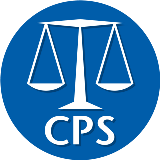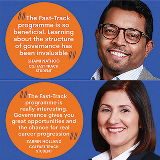*/
What it’s like being an Attorney General panel member, why you should consider applying in the next competition, and the GLD’s commitment to diverse and fair allocation
It might interest you to read that the Government Legal Department (GLD), a national legal organisation of just over 3,000, is the biggest litigator in the Supreme Court. You may also be intrigued to know that GLD engages external counsel to defend the government in court on some of the most-high profile and pivotal cases of the day.
We source this counsel via three Attorney General’s Panels (A, B and C), for both London and the regions. In being appointed to panel, many work on what can be career defining cases that still offer flexibility in being able to pick and choose what you agree to work on.
Panel A undertakes the most complex and often most high-profile government cases and counsel often have more than 10 years’ advocacy experience. B panel considers substantial cases and will often be instructed if expert knowledge of a specific area is required. Members of B panel will have between 5 and 10 years’ advocacy experience. Panel C members will generally have between 2 and 5 years’ advocacy experience but those with more experience can apply. Those appointed to the C panel will often become the A and B panel members of the future.
The panels are open to both barristers and solicitors with Higher Rights of Audience. Those appointed work with lawyers from across government in various departments on a vast array of issues.
Sadiya Choudhury, member of London A panel notes:
‘I very much value the experience I have gained as a barrister on panel. It has helped me develop my advisory and litigation practice for all my clients, not just those I act for when on panel. You will not get a better opportunity to work for a wide variety of clients with a range of legal issues in your career at the Bar.’
The type of work you might find on panels ranges from National Security to immigration. The selection board want to know your strengths and hear from those with an array of expertise, even if public law is not a common practice area.
Our panels need a broad range of practitioners to ensure they are representative of the country and include experts on many different practice areas. Likewise, even if your area of expertise, like tax or charity, involves less advocacy do still apply as the panels require individuals who can respond to the many different issues that arise.
You are encouraged to keep an active practice beyond panel work, but you can expect to receive regular instructions, with at least 60% of those on all the panels receiving regular work.
We are also developing an improved management information pack and system for allocations, to ensure that our instructions reflect our diverse panel membership. This forms part of our efforts to address the findings of the 2022 Bar Council report Government legal panels: an analysis of membership by ethnicity and sex.
Panel work, says Azeem Suterwalla, member of London A:
‘not only provides an excellent mix in the type of work you are able to undertake, but also a chance to work with or be against leading Counsel. Being on the A Panel also allows you to work closely with senior lawyers at GLD and to work as part of a team.’
Attorney General, the Rt Hon Victoria Prentis KC MP has reflected on the importance of the panels:
‘The panels are vitally important and being a member is a huge honour for any legal professional. It is an opportunity to provide counsel to Government and appear as an advocate on behalf of the Crown on some of the most important and complex cases of the day.
‘We want the best candidates to apply from a range of law firms and chambers, and I thoroughly encourage everyone to consider applying.’
For detailed information visit the Government Legal Department.
It might interest you to read that the Government Legal Department (GLD), a national legal organisation of just over 3,000, is the biggest litigator in the Supreme Court. You may also be intrigued to know that GLD engages external counsel to defend the government in court on some of the most-high profile and pivotal cases of the day.
We source this counsel via three Attorney General’s Panels (A, B and C), for both London and the regions. In being appointed to panel, many work on what can be career defining cases that still offer flexibility in being able to pick and choose what you agree to work on.
Panel A undertakes the most complex and often most high-profile government cases and counsel often have more than 10 years’ advocacy experience. B panel considers substantial cases and will often be instructed if expert knowledge of a specific area is required. Members of B panel will have between 5 and 10 years’ advocacy experience. Panel C members will generally have between 2 and 5 years’ advocacy experience but those with more experience can apply. Those appointed to the C panel will often become the A and B panel members of the future.
The panels are open to both barristers and solicitors with Higher Rights of Audience. Those appointed work with lawyers from across government in various departments on a vast array of issues.
Sadiya Choudhury, member of London A panel notes:
‘I very much value the experience I have gained as a barrister on panel. It has helped me develop my advisory and litigation practice for all my clients, not just those I act for when on panel. You will not get a better opportunity to work for a wide variety of clients with a range of legal issues in your career at the Bar.’
The type of work you might find on panels ranges from National Security to immigration. The selection board want to know your strengths and hear from those with an array of expertise, even if public law is not a common practice area.
Our panels need a broad range of practitioners to ensure they are representative of the country and include experts on many different practice areas. Likewise, even if your area of expertise, like tax or charity, involves less advocacy do still apply as the panels require individuals who can respond to the many different issues that arise.
You are encouraged to keep an active practice beyond panel work, but you can expect to receive regular instructions, with at least 60% of those on all the panels receiving regular work.
We are also developing an improved management information pack and system for allocations, to ensure that our instructions reflect our diverse panel membership. This forms part of our efforts to address the findings of the 2022 Bar Council report Government legal panels: an analysis of membership by ethnicity and sex.
Panel work, says Azeem Suterwalla, member of London A:
‘not only provides an excellent mix in the type of work you are able to undertake, but also a chance to work with or be against leading Counsel. Being on the A Panel also allows you to work closely with senior lawyers at GLD and to work as part of a team.’
Attorney General, the Rt Hon Victoria Prentis KC MP has reflected on the importance of the panels:
‘The panels are vitally important and being a member is a huge honour for any legal professional. It is an opportunity to provide counsel to Government and appear as an advocate on behalf of the Crown on some of the most important and complex cases of the day.
‘We want the best candidates to apply from a range of law firms and chambers, and I thoroughly encourage everyone to consider applying.’
For detailed information visit the Government Legal Department.

No-one should have to live in sub-standard accommodation, says Antony Hodari Solicitors. We are tackling the problem of bad housing with a two-pronged approach and act on behalf of tenants in both the civil and criminal courts

Pupillage offers hit new record exceeding pre-pandemic levels, Bar Council report finds

What’s it like being a Senior Crown Prosecutor? Stuart Page describes what drew him to the role, the skills required, and a typical day in the life

Harry Hodgkin, CEO of The Barrister Group, gives an insight into Chambers' core principles and the individual barrister's experience

Congratulations to the Crown Prosecution Service – a Top 10 Employer for Working Families 2023

With the explosion of interest in governance and the growing need to be multi-skilled to keep career options open, adding an extra string to your bow is not without its merits. The Chartered Governance Institute UK Ireland (CGIUKI) Fast Track for the Chartered Governance Qualifying Programme could be ideal for experienced professionals to reach chartered governance status